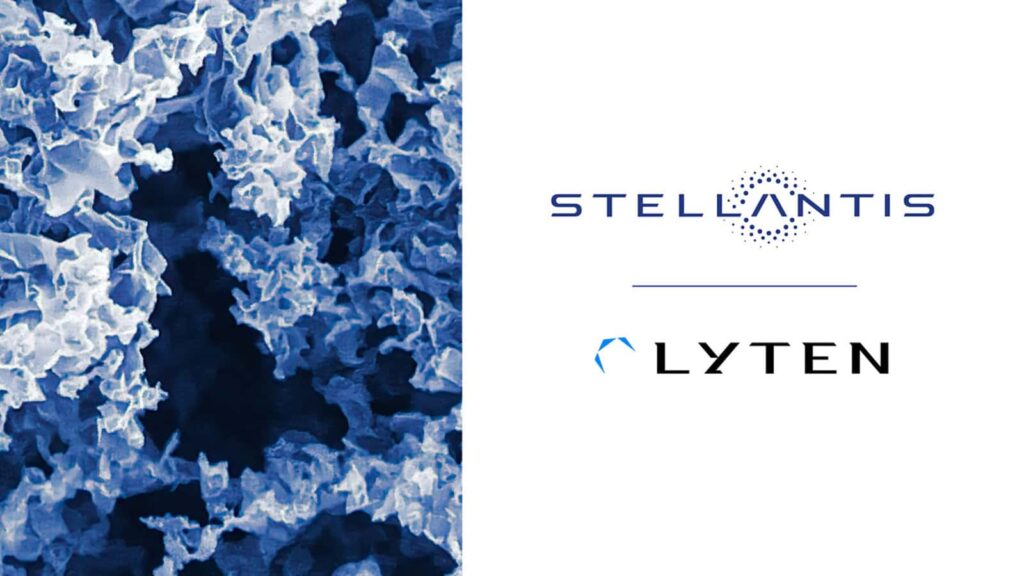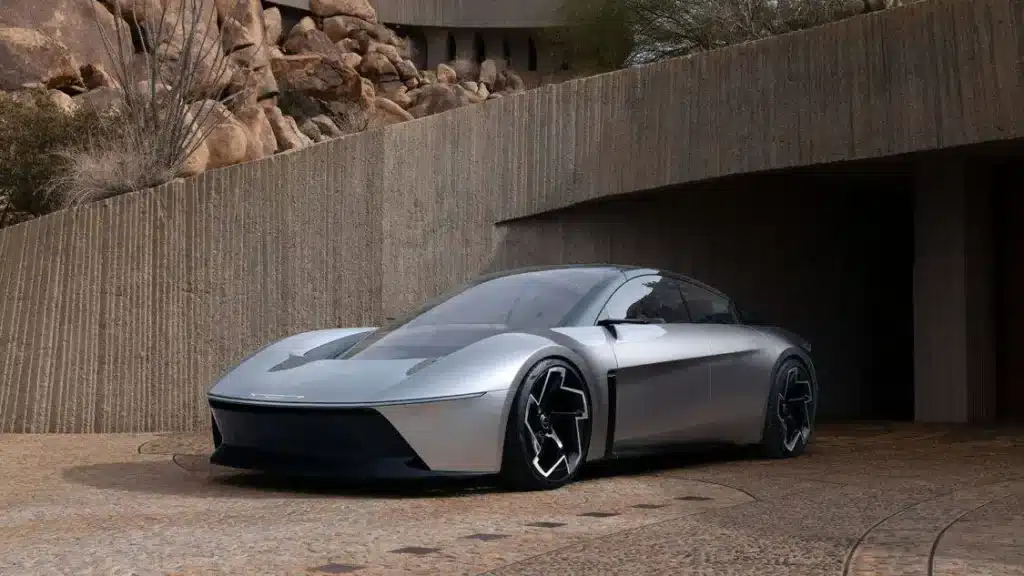Lyten’s Lithium-Sulfur Battery Could Be Used in Mass Production
In May 2024, Lyten announced it shipped “A” samples of its 6.5 Ah (C/3 discharge rate, 25°C) lithium-sulfur (Li-S) pouch cells to Stellantis and other automotive OEMs in the United States and European Union for evaluation in EVs. Samples were also sent to a major consumer electronics company and to U.S. military agencies.
Located in San Jose, California, Lyten is a supermaterial applications company. It is also a global leader in lithium-sulfur battery technology. Real-world applications for Lyten’s lithium-sulfur batteries include electric vehicles, space, aerospace, drones, micromobility, defense, and consumer electronics. Raw materials for lithium-sulfur batteries are plentiful and can be potentially sourced and produced locally in North America.
Lyten manufactures lithium-sulfur battery cells in both pouch and cylindrical formats (2170 and 18650). Lyten plans to deliver cylindrical “A” samples for evaluation later this year. The company said it is currently on target to deliver its commercial use lithium-sulfur cells to aerospace and defense customers this year.
Lyten is a pioneer of three- dimensional (3D) Graphene. 3D Graphene is widely seen as a technical breakthrough. Lyten said that unlike two-dimensional graphene, the production of its tunable Lyten 3D Graphene has been independently verified to be carbon neutral at scale.

Chrysler Halcyon Concept Used Lithium-Sulfur EV Batteries
In February 2024, Stellantis brand Chrysler announced using Li-S batteries in its Halcyon concept EV. The sleek, exciting concept vehicle included several technology breakthroughs. It included the STLA AutoDrive technology platform, which enabled Level 4 autonomous driving in the vehicle.
It also included wireless charging and 800 V lithium-sulfur EV batteries. The lithium-sulfur EV batteries were said to result in an estimated 60% lower carbon footprint than most best-in-class EV batteries used today.

Lithium-Sulfur Battery Technology Carries Numerous Benefits
Also in February 2024, MIT Technology Review reported on the benefits of lithium-sulfur batteries. Celina Mikolajczak, chief battery technology officer at Lyten, told MIT Technology Review that the cost of materials for lithium-sulfur batteries is around half that of lithium-ion cells. One reason for the lower cost is that sulfur is widely abundant and inexpensive.
Lithium-sulfur batteries are thought to have a materials and manufacturing cost competitive with low-cost LFP (lithium iron phosphate) batteries, which are growing in popularity among OEMs producing battery electric vehicles and hybrids currently.
Lithium-sulfur battery production represents an alternative, non-nickel-manganese-cobalt cathode solution to batteries using nickel and manganese. Industry experts believe lithium-sulfur batteries have the potential to deliver more than twice the energy density of lithium-ion batteries commonly used in EVs today.
Lyten’s Funding Comes From Grants and Private Investment
In January 2024, the U.S. Department of Energy granted Lyten $4 million to accelerate development. In the third quarter of 2023, Lyten said it had raised $200 million through a Series B round of funding, bringing total investment up to $410 million.
At the time, the company said the funding would be used to scale 3D Graphene applications and lithium-sulfur battery manufacturing.
Stellantis Has Invested in Lyten
In May 2023, Stellantis invested in Lyten to move forward the commercialization of Lyten 3D Graphene applications for the EV industry, including Lyten’s LytCell lithium-sulfur battery, lightweighting composites, and novel on-board sensing.
Lyten’s automated pilot line in San Jose opened in May 2023. Lyten is planning its first giga-scale facility, currently being designed with Turner Construction and SSOE. The facility will manufacture automotive “C” samples and beyond.
Stellantis Also Made a Sodium-Ion Battery Technology Investment
Stellantis isn’t banking only on lithium-sulfur EV battery technology. In January 2024, the company announced a strategic investment in Tiamat, a France-based company that is currently developing and commercializing sodium-ion battery technology, for use in EVs and other applications.
Sodium-ion is a growing battery type, evidenced by plans for the first commercial-scale production of sodium-ion batteries in the U.S., announced by Natron Energy in April. Chinese company JMEV began producing its sodium-ion battery powered EV3 (Youth Edition) in December 2023, using Farasis Energy batteries.
Also in December 2023, Volkswagen-backed Chinese EV company Yiwei launched its first sodium-ion battery electric car. In January 2024, BYD began construction on its first sodium-ion battery plant in China.
Stellantis Is Following Through on Its Dare Forward 2030 Strategic Plan
The company’s Dare Forward 2030 strategic plan sets out very commendable core environmental targets for Stellantis. The targets include deep emission cuts to slash CO2 in half by 2030. Achieving net zero carbon emissions by 2038 is another goal of the plan.

Electric Vehicle Marketing Consultant, Writer and Editor. Publisher EVinfo.net.
Services